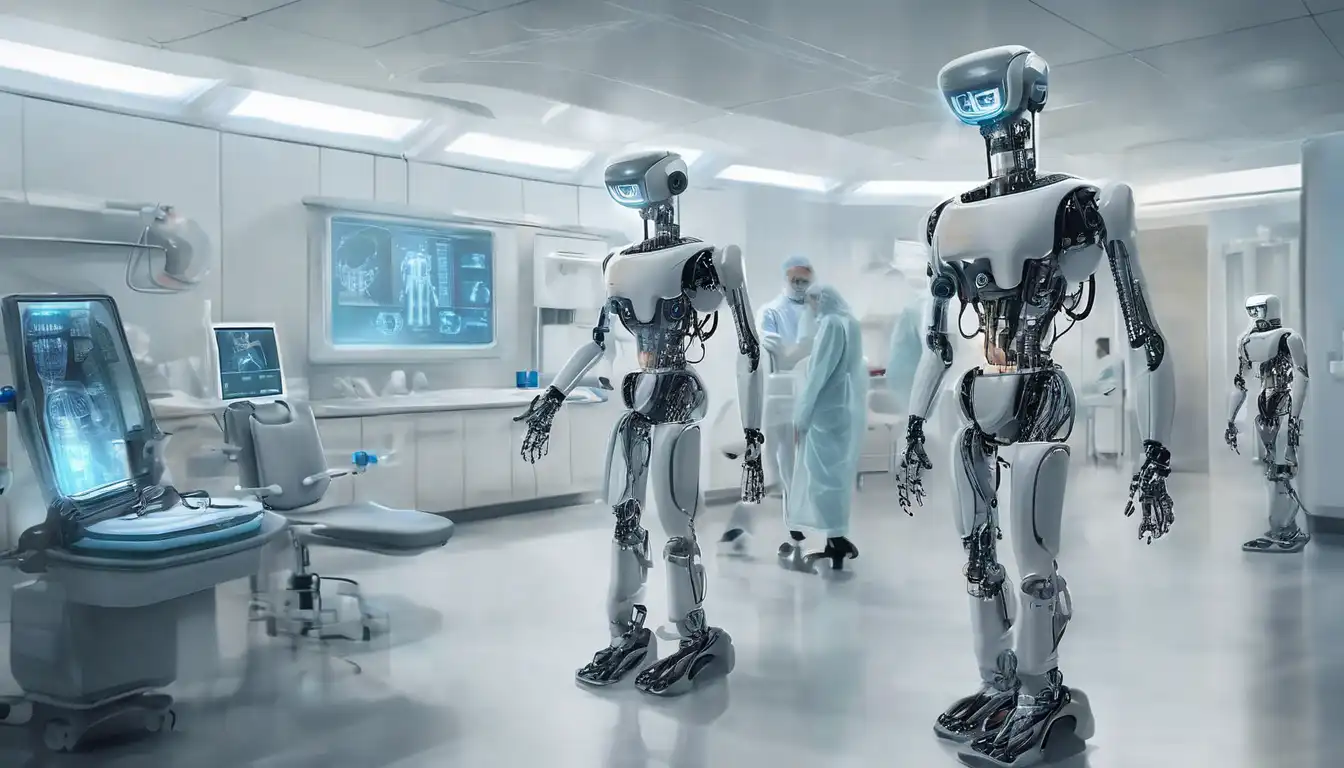The Next Era of Robotics in Healthcare
The integration of robotics into healthcare is transforming patient care, surgical procedures, and rehabilitation processes. This technological evolution is not just enhancing efficiency but also improving the accuracy and outcomes of medical treatments. As we look towards the future, the potential of robotics in healthcare seems boundless, promising a new era of medical excellence.
Transforming Surgical Procedures
Robotic surgery has become a cornerstone of modern medical practices, offering precision that surpasses human capabilities. Systems like the Da Vinci Surgical System allow surgeons to perform complex procedures with minimal invasiveness, reducing recovery times and improving patient outcomes. The future may see these systems becoming more autonomous, further revolutionizing the operating room.
Enhancing Patient Care
Beyond the operating room, robotics plays a pivotal role in patient care. From robotic exoskeletons that aid in rehabilitation to automated dispensing systems that ensure accurate medication delivery, the applications are vast. These innovations not only improve the quality of care but also alleviate the workload on healthcare professionals, allowing them to focus on more critical tasks.
The Role of AI in Robotics
Artificial Intelligence (AI) is the driving force behind the next generation of healthcare robotics. AI algorithms enable robots to learn from data, adapt to new situations, and make decisions with minimal human intervention. This synergy between AI and robotics is paving the way for breakthroughs in personalized medicine and predictive healthcare.
Challenges and Opportunities
Despite the advancements, the integration of robotics into healthcare faces challenges, including high costs, ethical considerations, and the need for specialized training. However, the opportunities for improving patient outcomes and streamlining healthcare processes are immense. As technology advances, these challenges are likely to be addressed, making robotics an integral part of healthcare.
The future of robotics in healthcare is not just about technological innovation but also about redefining the patient-caregiver relationship. By embracing these changes, the healthcare industry can achieve unprecedented levels of efficiency and effectiveness, ultimately leading to better health outcomes for patients worldwide.
Conclusion
The journey of robotics in healthcare is just beginning. With continuous advancements in technology, the potential to revolutionize every aspect of healthcare is within reach. From surgical robots to AI-driven diagnostics, the future promises a healthcare system that is more precise, efficient, and patient-centric than ever before.
